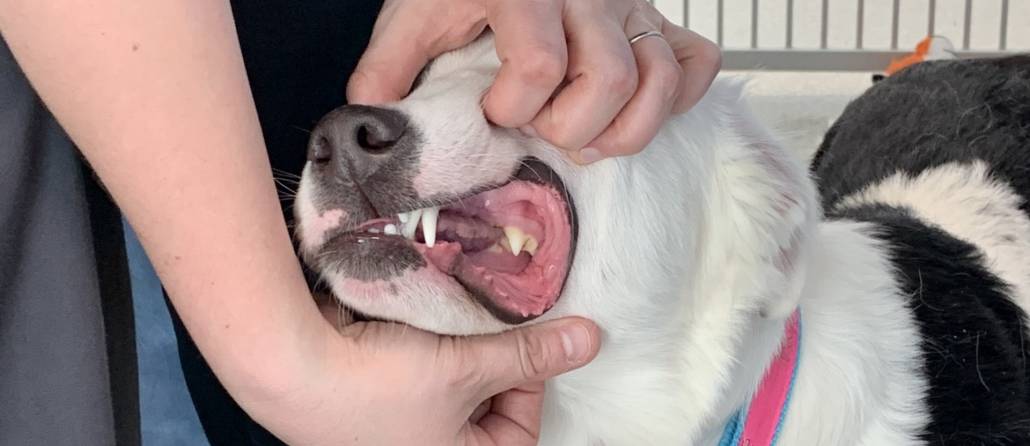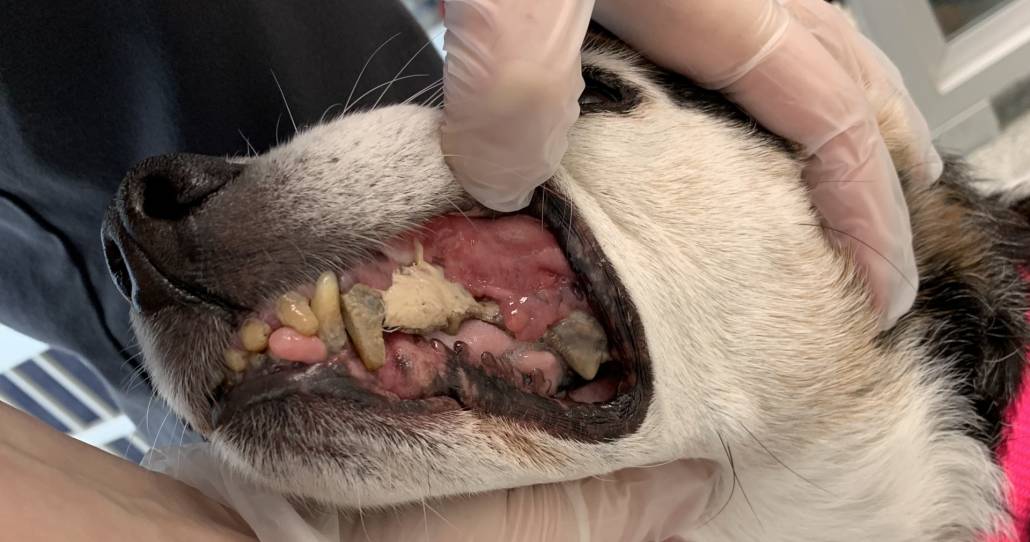February is National Pet Dental Health Month, and as your partner in companion animal welfare, our team of experts has compiled a list of recommendations, insights, and warning signs to help ensure your pet’s pearly whites remain strong and healthy long into the future.
1. Dental health is important to address because, if left unattended, it can affect various internal systems and organs beyond simply the mouth. Periodontal disease in pets has been linked to complications with their heart, kidney, and liver.

2. When considering dental cleanings, procedures performed under anesthesia are your best bet. The most serious diseases are often found under the gum line – a place very heard to examine while the animal is awake. Anesthesia offers the opportunity for your veterinarian to take x-rays of your animal’s mouth in order to get the best read on their specific needs.
3. Daily brushings – with pet toothpaste, not the human variety – is the gold standard in caring for your pet’s teeth. Recognizing that daily brushing isn’t always feasible, multiple times a week can be as effective.

4. Contrary to popular belief, reduction of appetite or food intake aren’t always present when a pet is experiencing a dental problem. In addition to proactive dental care, keep an eye out for these warning signs there could be a problem: bad breath, broken or loose teeth, retained baby teeth, teeth that are discolored or covered in tartar, swelling in or around the mouth, abnormal chewing, drooling, or dropping food while trying to eat.
5. Behavior changes can also indicate a dental problem. Aggression or irritability are potential indicators of a periodontal issue.
6. As a reminder, you should always exercise caution when checking on your pet’s mouth as an animal in pain may bite.
For optimal pet health, frequent brushing and occasional dental cleanings are generally recommended. Most importantly, though, is to recognize signs there could be a problem. Your pet’s veterinarian can recommend the optimal plan for your pet’s unique dental health needs.





Leave a Reply
Want to join the discussion?Feel free to contribute!